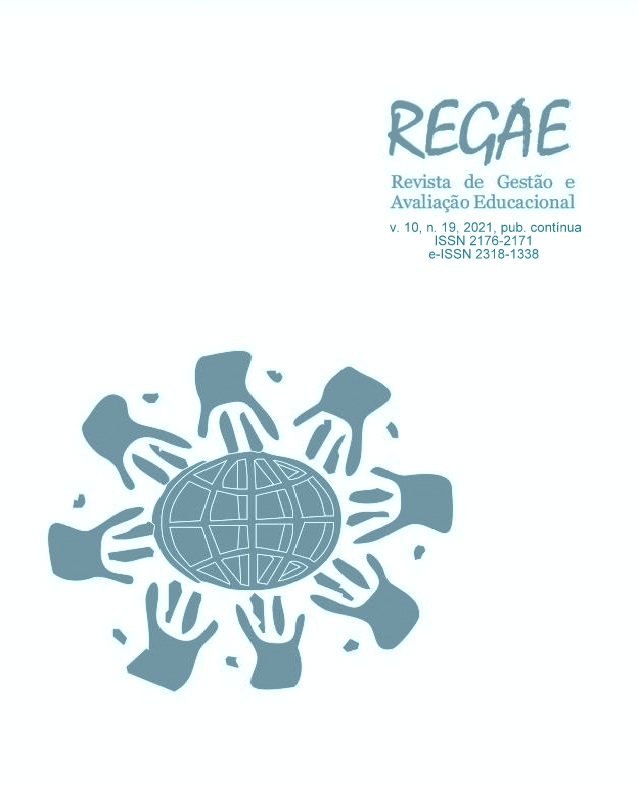Experiences of school management aiming at the training of administrative employees
DOI:
https://doi.org/10.5902/2318133865003Keywords:
formação em serviço, trabalhadores em educação, gestão escolar, funcionários administrativos da escola.Abstract
This work intends to reflect on some formative experiences aimed at administrative employees of a school of education for work. Through the discourse and social practice that everyone who works at this institution are educators in their attitudes, such as administrative teams - service, library, secretariat, maintenance, human resources, cleaning, information technology and coordination assistants - experienced formative processes contribute to the construction of a democratic school space. In this way, some proposals from the management team that promoted the work of the administrative teams as workers in the school will be presented. In addition to the experiences, the processes that drove this formative sequence will be highlighted. The guiding question of this work is the following: how can the formation of administrative teams help to ensure that all sectors of the school are spaces for learning?
Downloads
References
AZANHA, José Mário Pires. Educação: alguns escritos. São Paulo: Companhia Editora Nacional, 1987.
BRASIL. Lei n. 9.394, de 20 de dezembro de 1996. Disponível em: http://www.planalto.gov.br/ccivil_03/leis/l9394.htm. Acesso: 27 mar. 2021.
CANÁRIO, Rui. Formação e desenvolvimento profissional dos professores. Lisboa: Ministério da Educação, 2008, p. 133-148.
CIMEAC. A educação como projeto de corresponsabilização: práticas, saberes e mudança social no século XXI - entrevista com José Pacheco. Cadernos Cimeac, Uberada, v. 6, n. 2, 2016, p. 5-14.
DELORS, Jacques et al. Educação: um tesouro a descobrir. Disponível em: https://unesdoc.unesco.org/ark:/48223/pf0000109590_por. Acesso em: 18 mar. 2021.
FREIRE, Paulo. Educação e mudança. São Paulo: Paz e Terra, 1979.
FREIRE, Paulo. Conscientização, teoria e prática da libertação: uma introdução ao pensamento de Paulo Freire. São Paulo: Moraes, 1980.
KUNTER, Mareike et. al. Professional competence of teachers: effects on instructional quality and student development. American Psychological Association: Journal of Educational Psychology. Washington, v. 105, n. 3, 2013, p. 805-820.
PERRENOUD, Philippe. Desenvolver competências ou ensinar saberes? A escola que prepara para a vida. Porto Alegre: Penso, 2013.
PLACCO, Vera Maria Nigro de Souza; ALMEIDA, Laurinda Ramalho de; SOUZA, Vera Lucia Trevisan. O coordenador pedagógico e a formação de professores: intenções, tensões e contradições. São Paulo: FVC, 2011.
PLACCO, Vera Maria Nigro de Souza; ALMEIDA, Laurinda Ramalho de; SOUZA, Vera Lucia Trevisan. Retrato do coordenador pedagógico brasileiro: nuanças das funções articuladoras e transformadoras. In: PLACCO, Vera Maria Nigro de Souza; ALMEIDA, Laurinda Ramalho de; SOUZA, Vera Lucia Trevisan (org.). O coordenador pedagógico no espaço escolar: articulador, formador e transformador. São Paulo: Loyola, 2015, p. 9-24.
SCHMIDT, Leide Mara. A desconhecida dinâmica da escola. In: RIBAS, Mariná Holzmann (org.). Formação de professores: escolas, práticas e saberes. Ponta Grossa: UEPG, 2005.
Downloads
Published
How to Cite
Issue
Section
License
Authors keep copyright and concede to the magazine the right of first publication, with the work simultaneously licensed under the Creative Commons Attribution 4.0 International, non-commercial license with no derivative work, which allows to share the work with no author recognition and initial publication in this magazine.
Authors has authorization to overtake additional contracts separately, to distribute a non-exclusive version of the work published in this magazine: For example: to publish in an institutional repository or as a chapter of a book, with authorial recognition and initial publication in this magazine.
Authors are allowed and are encouraged to publish and distribute their work online. For example: in institutional repositories or in their own personal page – at any point before or during the editorial process, because this can result in productive changes, as well as increase the impact and the mention to the published work.






